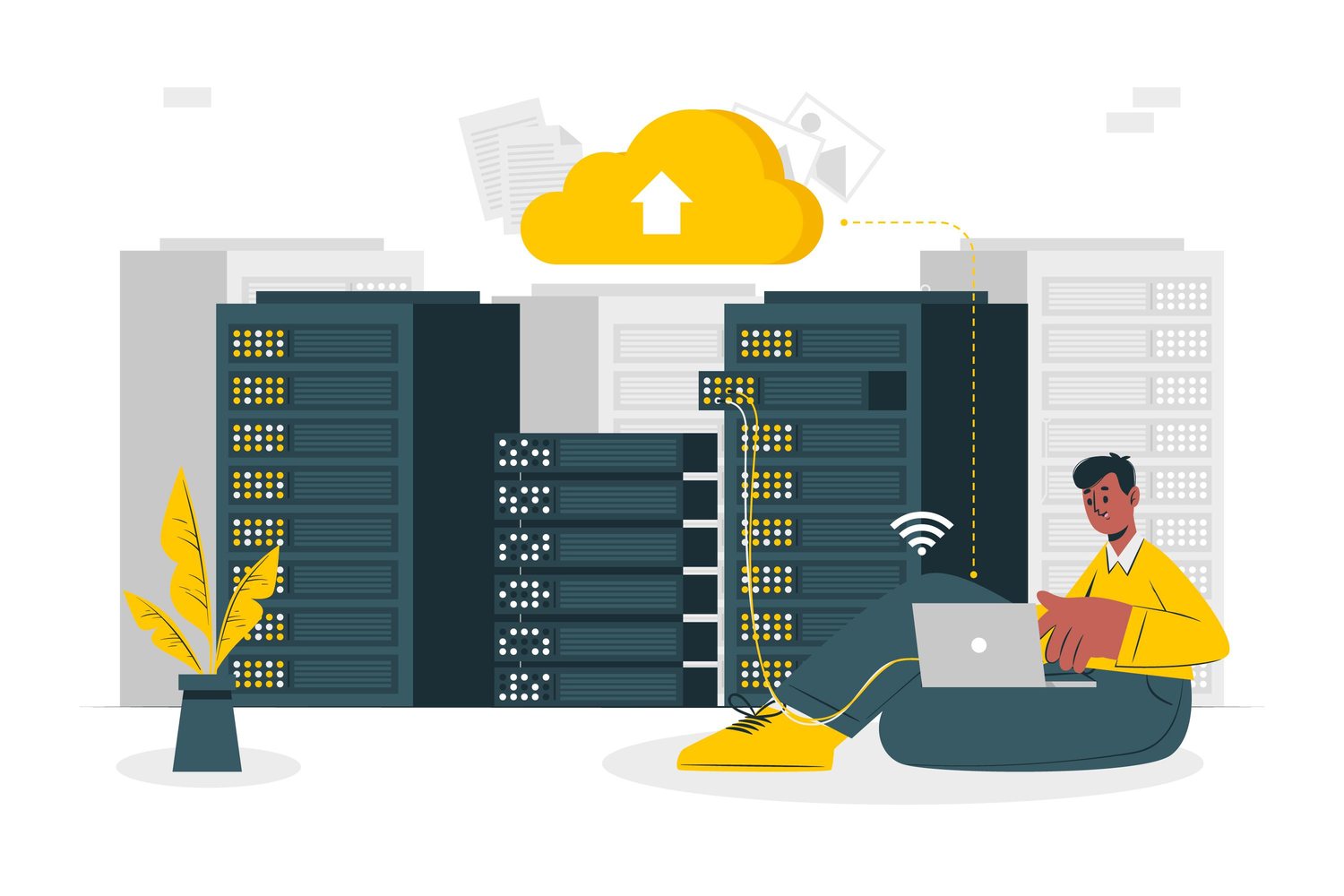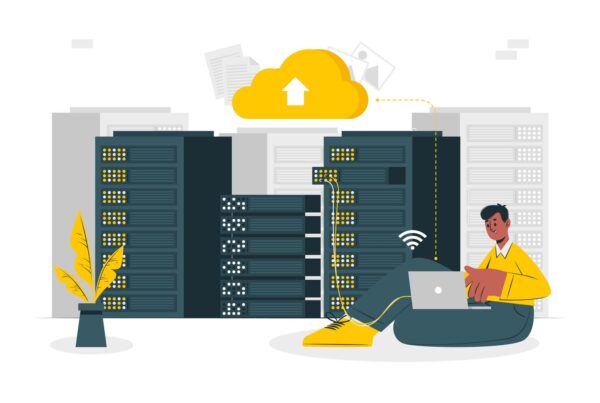If you’re planning to start an on-line enterprise, or if you’ve already got one, you’ll know that there are many different web hosting plans out there – each with its own set of advantages and disadvantages.
The least expensive is very popular shared hosting with hundreds of web sites all sharing a single, very large hard drive. However this type of Hosting is not always well suited for all sites, especially for high traffic sites, because it is not always possible to isolate each website from other sites that share the server. The really big sites employ dedicated servers. One company. One server.
In between these two options is virtual private server, or VPS. VPS is less expensive (much less) than a dedicated or private server, and offers more freedom and many more options to a growing on-line business than shared hosting. With a Virtual Private Server, each web hosting account receives their own operating system. Users can configure these components without affecting other users on the same physical machine because they are working within their own virtual server. Moreover a VPS hosting environment can be smoothly scaled to even more powerful physical hosts as demand increases. In the long run, hosting on a VPS can significantly reduce the total cost of ownership.
VPS isn’t suitable for every site owner. Some people wish to host a low-to-moderate traffic website and are happy with the level of control offered by a web hosting control panel like cPanel or Plesk. These individuals will prefer Shared Hosting for its perceived simplicity and ease of use: they generally do not have linux system administration experience and they are not interested in picking up any. Other have outgrown their shared hosting account or aren’t happy with site performance (30-second download times) then it’s definitely time to move up to a VPS account. A good web hosting company will help you migrate from your shared account to a VPS account without any breakdowns or hassles.
Do I Need VPS? If you plan to expand, offering more products and services, then consider a VPS plan even as a start-up. The difference in price between a good shared hosting plan and a good VPS plan is negligible in the whole bang-buck equation.
These are the main advantages:
PERFORMANCE
Shared server accounts are always dependent on the performance and good behavior of neighboring accounts. If one account violates their terms of service and sends out a mass-mailing of spam, this will load the server and negatively impact the performance of all accounts on that server.
VPS have guaranteed resources. One customer can not run away with a large share of the resources. You service will run reliably and predictably. If you have a bad VPS neighbor, they will tend to impact only their own account, as each account appears like a separate server to the Internet.
They will not be able to grab your memory when you need it, get your server blacklisted, etc.
HIGH CUSTOMIZABILITY
Virtual Private Servers are very feature rich. They are functionally equivalent to a dedicated server.
Some applications require that certain ports and/or protocols be opened or closed in the firewall. With Shared hosting, custom firewall configurations are not advisable for security reasons. Under the VPS, custom firewall configurations are feasible because of the partitioning between customers.
With a VPS, you can close ports using the IPTables feature.
You have your own IP Address.
You have Root Access.
Freedom to reboot your VPS at any time.
You can customize services such as web, mail, database, panels, domains
and much more…
The only limitation is you are not able to install your own kernel. This is due to the nature of how a VPS work.
SECURITY
Shared hosting is inherently difficult to secure completely. If an account on a shared server is broken into, the criminal may cause damage to the entire server, causing extended outages. If a spammer causes the server to get blacklisted with Spam organizations, this may impact other accounts that produce legitimate mailings until the server is whitelisted again.
VPS accounts are insulated from each other, minimizing the risk of unauthorized access from hackers as well as other customers. The isolation of your account also minimizes the risk of being impacted by a DoS attack that was intended for someone else.
SCALABILITY
Virtual private servers are inherently scalable – whether you need a minimal allocation to run a simple e-mail server or virtual private network end-point or a webserver with enough resources to support extensive database applications and heavy traffic, there is always a VPS hosting plan to meet your needs. Moreover you can anytime easily downgrade or upgrade your service with very little or no downtime!
UNLIMITED WEBSITES
Another advantage to VPS is the ability to manage numerous web sites. You won’t run into problems with hardware sharing even if you run a dozen different sites. Your access to server assets is assured through the use of server-side software such as Apache Virtual Hosts and similar VPS packages. VPS hosting plans are a bit pricier than shared hosting. But with more and more sites coming on-line (approximately 6,000 a day!) VPS offers better value for your server dollars when you can host as many sites as you want. When considering VPS plans, amortize the monthly costs over the number of sites you anticipate creating. You’ll quickly see that VPS monthly costs are consistently lower than shared hosting on a per site basis.
There may be a little downside to VPS for some people. VPS = more responsibility. That means you are responsible for many of the software installations, site maintenance, site security and many of the other responsibilities that come with on-line business ownership. If you don’t know much about server side administration, VPS may be a bit more than you want to take on yourself. This is something to farm out to an expert if you’re not familiar with maintaining a VPS, but you still need the power and control of VPS.
The solution – get a managed vps, the hosting provider will take care of those things for you and you can pay full attention to your websites content.








